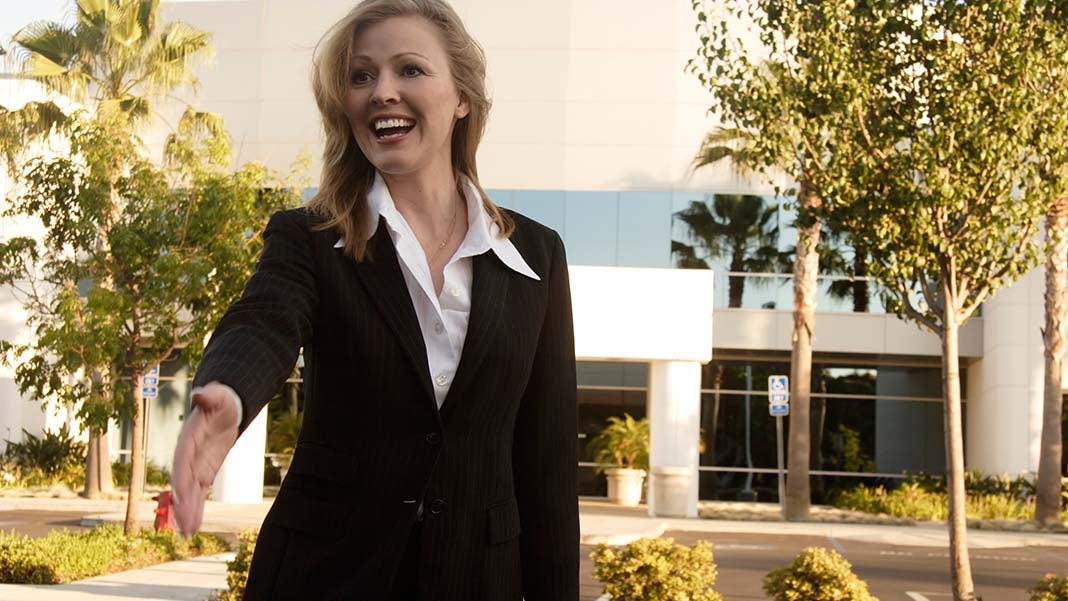How to Structure a Beneficial Commercial Real Estate Agent Relationship

Sitting down to the final contract signing with a franchisee marks an important moment in a franchisor’s path to growing their business. Despite the anticipation and relief between all involved parties, it’s more like the team gearing up at the starting line as opposed to crossing the finish.
For both the franchisor and the franchisee, the goal from here is to get the unit operational as soon as possible. While digital business models can be off and running by morning, brick-and-mortar businesses have several large hurdles facing them, particularly real estate. In many tight real estate markets, this hurdle turns into a roadblock, eating away weeks of an already time sensitive process. Commercial markets across the country remain tight.
Real estate agents can set a different tone.
What if instead of wrapping up that franchise agreement signing with a list of requirements for a prospective rental, the landlord came to the table with a list of five available units in the area? Working with commercial real estate agents can make that a reality.
Define Current Franchise Goals
Before staking out to build a budding relationship with a commercial real estate agency, it’s important to define your geographical goals for the franchise. Some companies go national right out of the gate. Others grow regionally before branching out to neighboring states. In a state as large and populous as California, a restaurant franchise can successfully grow within a single county.
It all comes down to defining your franchise goals and capital you have to invest in expanding.
Once you define your business parameters, look for a commercial real estate agency that services your regions. Ideally, you find one that works within all your ideal growth areas. For example, if your franchise is set to stay within San Diego County and Orange County, a large regional firm works well. If you have the capital and resources to go national, then partnering with a national brokerage gives you an advantage.
Complete the Vetting Process
Not all firms are created equal, nor do they each meet your individual needs the same way. After defining ideal service region, start to look at reputation, presence in the market place, and the typical placement time for other renters.
Next, evaluate how the relationships are structured. When possible, I recommend tenant agents. Even though the landlord ultimately pays the agent, the agents don’t have a conflict of interest prior to the transaction. Agents representing both the tenant and landlord find themselves in the classic conflict: you can’t represent two masters. No matter how impartial the realtor strives to be, that’s a hard position to be in.
Benefits
Ultimately, this relationship adds a layer of efficiency to opening each unit. Especially when working with a national firm, agents have a comprehensive understanding of your unique needs from the get-go. From the square footage to wiring to necessary modifications required, agents around the country or county seamlessly search for the perfect units. Once your team looks like it will close with the prospective franchise, you can give your agent a heads up to get everything in motion.
There’s one other valuable aspect. In my experience, when you outsource to too many realtors, you slowly move your search to the bottom of the pile. With only one commission to be given, realtors shy away from competition assuming other agents will claim the prize. When you invest into a single motivated realtor or agency, they invest their energy into making the deal work. As the relationship progresses, they become faster at securing the best locations.
In an industry where your goal is to get each new unit operational as quick as possible, this relationship can become a valuable asset.
Building Out Advantageous Relationships
Successful franchisors build out multiple key relationships in their rise to a thriving franchise empire. Particularly for small operations running on a shoestring budget, broker and real estate agent relationships drastically increase the number of prospective franchisees you attract. Learn more about structuring your broker relationship here.
In order to give your business the best legal footing to grow, there’s one more essential relationship. Partnering with an experienced franchise lawyer from the beginning ensures the foundational work is done properly and efficiently. From the trademark to preparing the FDD to navigating the state filings and registrations, there is a lot of legal work that goes into a converting a traditional business into a successful franchise.
As a co-owner in a franchise and an experienced franchise lawyer, I bring the expertise and unique perspective to give your business the best legal base to build on. In an environment that is continuing to put franchisors under more scrutiny and increased regulations, it’s paramount to build your franchise on solid legal ground.
Contact me today to put your franchise on the right track.












